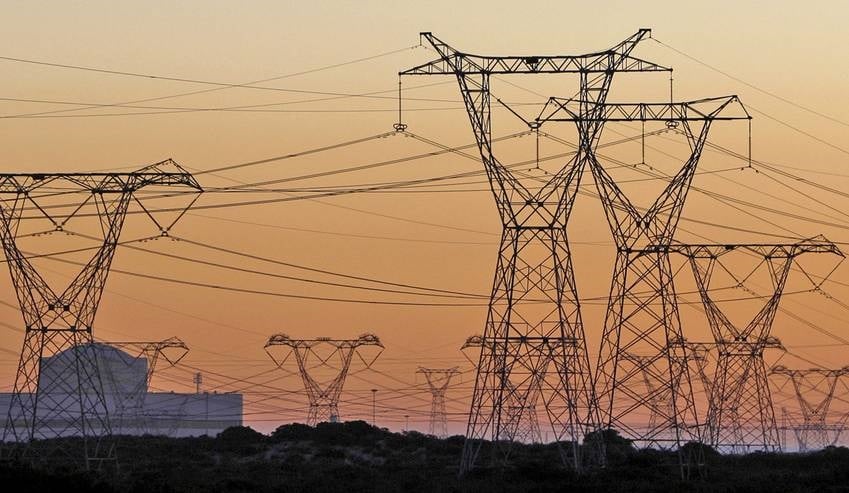
The National Energy Regulator of SA (Nersa) will soon face another, more fundamental, legal challenge against the way it sets power tariffs in the country.
A high court ruling in Pretoria this week declared the 9.4% increase Nersa allowed Eskom this year “irrational, unfair and unlawful”.
However, another case against the regulator, going to court soon, strikes at the heart of the tariffs most South Africans actually pay – the ones charged by municipalities.
Both cases were initiated by businesses from the Nelson Mandela Bay Municipality, organised under the High Energy User Group.
This week’s judgment by Judge Cynthia Pretorius saw Eskom’s 9.4% increase remitted to Nersa, which will most likely be forced to reduce Eskom’s tariffs next year to compensate for the unlawful increase.
Unless Eskom can make a new legitimate case for yet more increases, the judgment will result in a historic reduction in nominal power costs next year.
David Mertens, spokesperson for the High Energy User Group, told City Press: “I think the whole drama shows that they [Nersa and Eskom] don’t understand their own system.”
The High Energy User Group’s case against municipal tariffs has been a long time coming, with the original court papers filed in 2013.
After trading arguments with Nersa for three years, the case has been set down for hearing in the last week of October.
With the lessons learnt from the Nersa victory this week, this could have been done faster, said Mertens.
The case revolves around local governments’ ability to put “surcharges” on the power they buy from Eskom and resell to residents to fund other municipal activities.
Municipalities also apply to Nersa for their tariff increases and build these surcharges into the tariffs they ask for.
The High Energy User Group argues that this is illegal and that Nersa can only permit tariffs related to the actual distribution of power and a small “reasonable rate of return”.
Nersa is obliged to interrogate municipalities’ applications every year to make them accord with the actual costs of power, but instead just rubber-stamps them, argues the High Energy User Group.
Electricity sales are a major component of municipal income and if this case ends cross-subsidisation, it would have far-reaching effects on how local government works.
According to National Treasury’s latest local government statistics, the eight metros charged R50.5 billion for power in the nine months to the end of March this year.
They spent R46.1 billion on this power, meaning that their margin was R4.4 billion, or just under 9%.
In secondary cities, power sales were R12.6 billion versus costs of R10.8 billion – a margin of 14%.
The municipal tariffs were the ones the High Energy User Group’s members paid, said Mertens.
The better-known national Energy Intensive User Group, which counts the major mines and smelters as members, represents only direct Eskom customers who do not deal with municipalities.
HOW NERSA GOT IT WRONG
The North Gauteng High Court this week ruled that the 9.4% tariff hike Eskom was granted by Nersa this year was unlawful.
This hike stemmed from the so-called regulatory clearing account, a mechanism through which Eskom can raise tariffs by more than the baseline allowed by the five-year multiyear price determination.
Only regulatory clearing account increases stemming from drops in revenue or spikes in costs that Eskom cannot control are allowed.
According to Pretorius, Nersa made the wrong call on two fronts.
First, the correct procedure wasn’t followed. Eskom applied for it more than a year late, among other things.
Second, the decision itself was flawed because Nersa permitted Eskom to recover revenue it shouldn’t have.
WHAT IT MEANS
This week’s judgment does not reverse the 9.4% tariff increase this year.
Pretorius said that it was not the judiciary’s place to set tariffs, and that a reversal would in any case be impractical and damaging.
“They cannot change the tariffs now, so they will stay until next year,” said Mertens.
According to him, Nersa should now be forced to “debit” R11 billion from next year’s Eskom revenue.
The multiyear price determination sets a level of “allowed revenue” that gets translated into a tariff level every year based on expected power sales.
Originally, the current multiyear price determination allowed Eskom an average increase of 8% every year for five years.
Last year, Eskom used the regulatory clearing account to get this 8% increased to 12.7%.
That meant that its increase this year would only be 3.5% to return to the allowed revenue under the multiyear price determination.
Nersa then allowed Eskom to raise the 3.5% to 9.4% to recover an additional R11 billion. This is what was struck down this week.
Before the judgment, Eskom was only entitled to a 2.2% increase next year to return to the multiyear price determination’s allowed revenue.
Now Nersa may very well have to “debit” the R11 billion out of that allowed revenue, turning the 2.2% increase into a negative number.
The only way Eskom could avoid this would be to launch a new and successful regulatory clearing account application.




 Publications
Publications
 Partners
Partners









